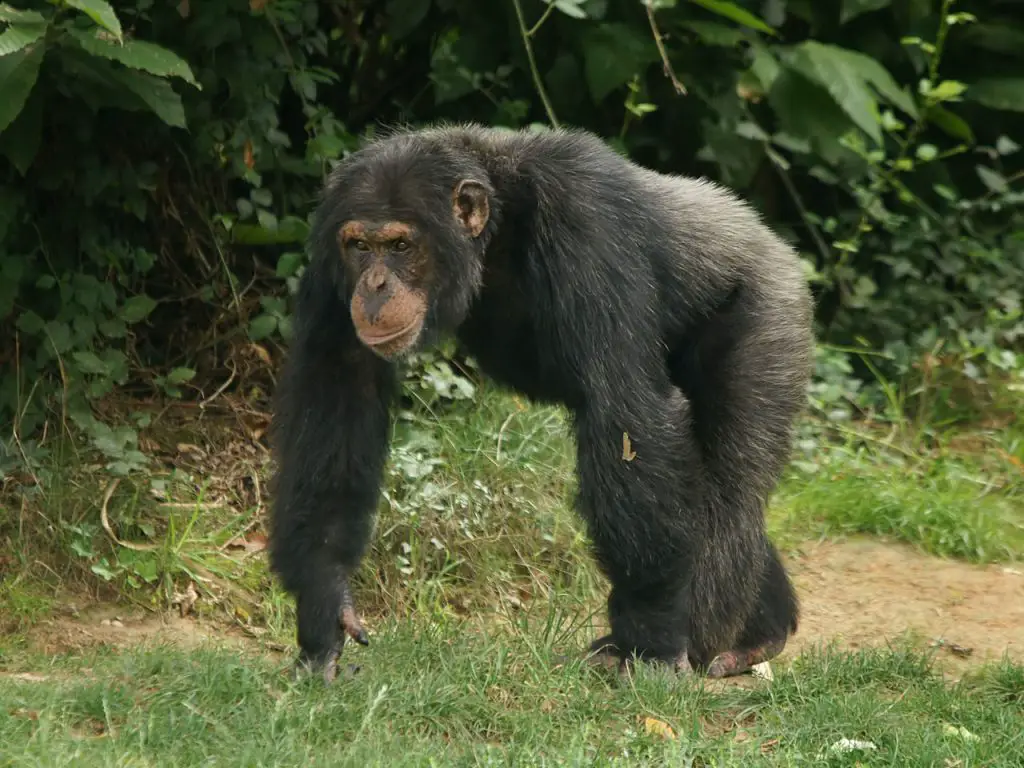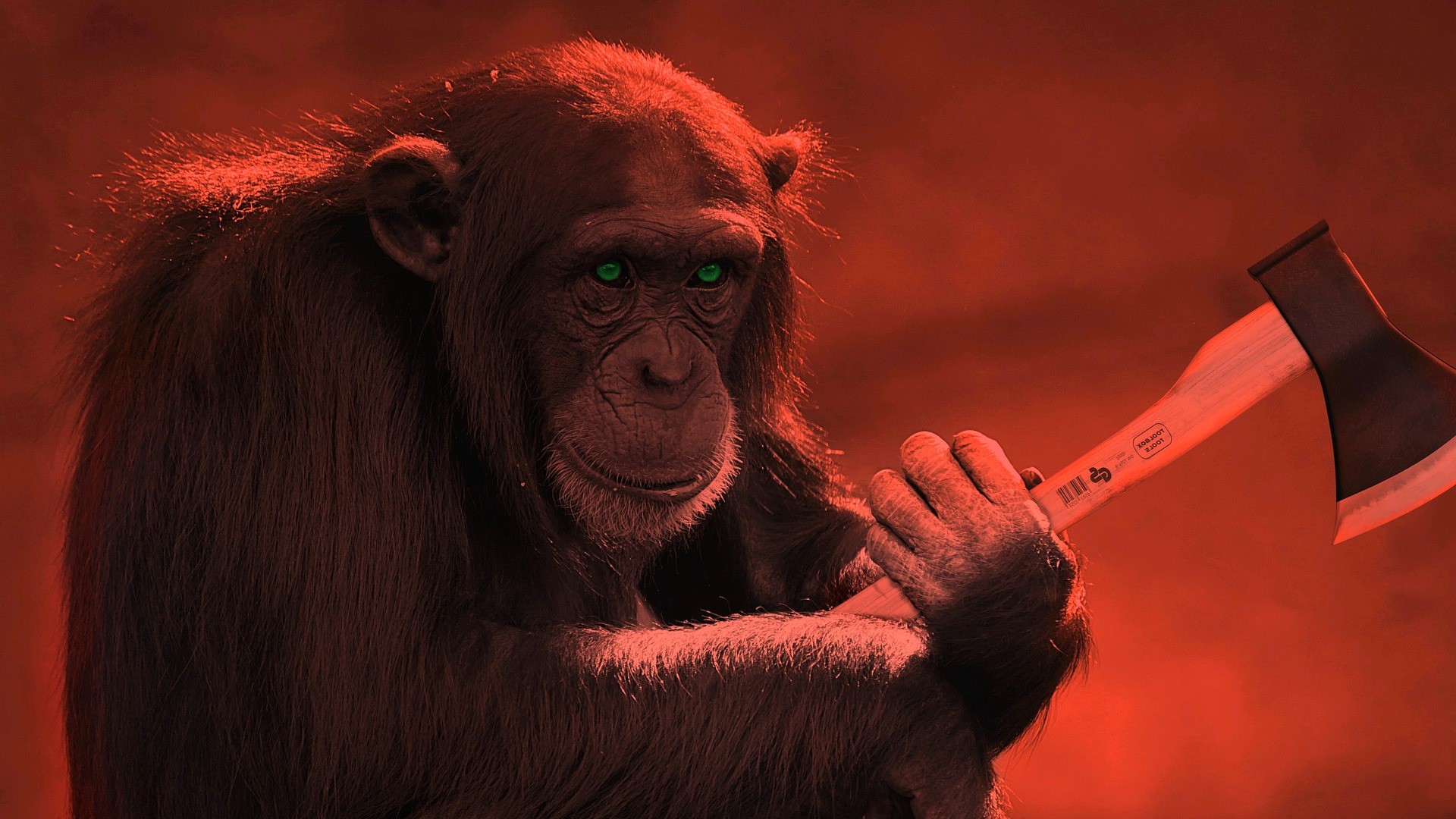 etween 1974 and 1978, a fascinating and little-known event unfolded in Nigeria—an intense and violent conflict known as the Chimp War. This article explores the remarkable circumstances surrounding this chimpanzee war, shedding light on its causes, the behaviors exhibited by the primates, and the insights gained into our understanding of chimpanzee societies and human evolution.
etween 1974 and 1978, a fascinating and little-known event unfolded in Nigeria—an intense and violent conflict known as the Chimp War. This article explores the remarkable circumstances surrounding this chimpanzee war, shedding light on its causes, the behaviors exhibited by the primates, and the insights gained into our understanding of chimpanzee societies and human evolution.
The Origins of the Chimp War
The origins of the Chimp War can be traced back to the Gombe Stream National Park in Nigeria, where British primatologist Dr. Jane Goodall was conducting groundbreaking research on chimpanzee behavior. In the early 1970s, a series of events, including a population increase and the death of a high-ranking male, set the stage for escalating tensions among different chimpanzee communities.

Chimpanzee societies are known to exhibit territorial behavior, and conflicts often arise when groups encounter each other. The war in Nigeria was triggered by the intrusion of a neighboring chimpanzee group into the territory of the Kasakela community, leading to a series of violent encounters. The territorial disputes, combined with resource competition, power struggles, and complex social dynamics, fueled the conflict and set the stage for a remarkable period of chimpanzee warfare.
The Dynamics of Chimpanzee Warfare
During the Chimp War, the chimpanzee communities engaged in a series of coordinated and aggressive attacks. These encounters involved males from both sides forming alliances, patrolling territory boundaries, and launching brutal assaults on individuals from rival groups. The violence included attacks involving biting, hitting, and even instances of infanticide.
The conflict exhibited strategic planning, with groups of males from the Kasakela community using coordinated tactics to launch attacks on their opponents. The rival group, known as the Kahama, retaliated in kind, leading to a back-and-forth exchange of hostilities. The intensity and duration of the Chimp War were unprecedented, with episodes of violence occurring over a span of several years.
Insights into Chimpanzee Societies and Human Evolution

The Chimp War in Nigeria provided researchers with invaluable insights into chimpanzee societies and their striking similarities to certain aspects of human behavior. The territorial aggression, formation of alliances, and coordinated attacks observed among the chimpanzees mirrored aspects of human warfare and hinted at shared evolutionary roots.
The conflict shed light on the complex social dynamics within chimpanzee communities, with males vying for dominance, forming alliances, and engaging in power struggles. These behaviors have important implications for our understanding of early human societies, suggesting that certain elements of our social structure and behavior may have originated from our common ancestor with chimpanzees.
Furthermore, the Chimp War challenged previous notions of chimpanzees as predominantly peaceful animals, highlighting the nuanced and dynamic nature of their societies. It emphasized the significance of social bonds, alliances, and conflicts in shaping their behaviors and challenged the stereotype of chimpanzees as docile creatures.
Conservation and Ethical Considerations
The Chimp War in Nigeria raises important questions regarding conservation efforts and the ethical implications of studying and observing chimpanzees in the wild. As our understanding of chimpanzee societies deepens, it becomes crucial to recognize the potential consequences of disturbances caused by human presence and activities.
Efforts must be made to protect chimpanzee habitats and maintain ecological balance to ensure the survival of these remarkable creatures. Balancing the need for scientific research with ethical considerations is essential, as it allows us to gain knowledge while also safeguarding the well-being of chimpanzee populations.
The Chimp War that unfolded in Nigeria between 1974 and 1978 offers a captivating glimpse into the complex social dynamics and behaviors of chimpanzees. This extraordinary event sheds light on the shared evolutionary history between humans and our primate relatives. By studying these chimpanzee societies, we gain valuable insights into our own past, our social structures, and the intricate mechanisms of conflict and cooperation.
The Chimp War serves as a reminder of the need for conservation efforts to protect the habitats and populations of these remarkable creatures. As we strive to understand our place in the natural world, it is vital to appreciate and respect the unique behaviors and societies of our primate cousins, fostering a deeper understanding of our shared evolutionary journey.
Avid Writer with invaluable knowledge of Humanity!
Upcoming historian with over 30 million views online.
“You make your own life.”





